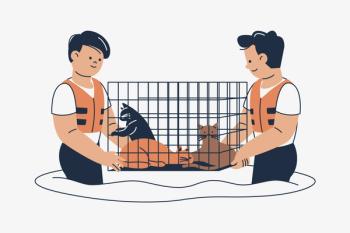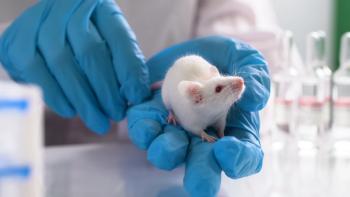
California Prop 2 debate divides DVMs
A debate has ensued over California's Prop 2, which would drastically alter animal agriculture.
SACRAMENTO, CALIF. — The heated debate over Proposition, 2, a law that would drastically change the way California's animal agriculture industry operates, has split the state veterinary medical association and spurred a number of lawsuits against agriculture groups alleging money laundering, federal campaign fund misappropriation, illegal lobbying and the illegal withholding of documents.
Prop 2, or the Prevention of Farm Animal Cruelty Act, would prohibit the confinement on a farm of pregnant pigs, calves raised for veal and egg-laying hens "in a manner that does not allow them to turn around freely, lie down, stand up and fully extend their limbs," according to the proposed law, which will be presented to California voters Nov. 4.
The law would take effect Jan. 1, 2015, and violations would be punishable as a misdemeanor, with a fine of up to $1,000 or six months in jail.
The law would require farmers to provide more space for all their animals and therefore could increase production costs, possibly causing some farmers to give up their businesses.
Arguments on either side of the proposed law are heated, with groups like the Humane Society of the United States, the Sierra Club and the California Veterinary Medical Association (CVMA) in favor, and farmers' organizations and other agriculturally dependent groups against the measure.
Veterinarians are split, and it's divided the state's veterinary medical association.
The disconnect, primarily along large-animal vs. small-animal veterinarian lines, has resulted in a spin-off of some of the CVMA's membership to a new group, the Association of California Veterinarians (ACV).
The CVMA, the largest state association in the American Veterinary Medical Association's (AVMA) House of Delegates, supports the ballot measure, arguing that cramped agriculture housing violates its principles of animal care, and that there is plenty of time to implement new housing strategies before the proposed law would take effect.
"I really think we'll be able to come up with an improved confinement system in seven years," says CVMA President Dr. William Grant II.
But those who oppose Prop 2 and make up the new ACV group say caging practices are not inhumane, that the proposed law could cripple farmers, negatively affecting the practice of food-animal medicine in California. "Our biggest issue is having the humane societies dictate animal welfare laws," says Dr. Michael Karle, ACV's leader and chair of the CVMA's agricultural committee. "Let the free market dictate what's going on."
More movement of farm animals also could lead to more outbreaks of diseases, Karle adds.
But the so-called VMA split isn't what it seems, Grant and Karle say. The ACV simply formed as an additional special-interest group to voice its opposition to the CVMA's stance on Prop 2.
The AVMA for a long time hesitated to step into the battle, but finally released a statement applauding concern over animal welfare but cautioning against the consequences of Prop 2.
"[Prop 2] is admirable in its goals to improve the welfare of production farm animals; however, it ignores critical aspects of animal welfare that ultimately would threaten the well-being of the very animals it strives to protect," says the AVMA.
While the AVMA does not condemn Prop 2 directly in its statement, it says current housing methods could use more consideration and research, but drastic change like Prop 2 could cause even more problems with regard to both food animals and the animal agriculture industry.
"Changing housing standards without consideration of how this may affect animal welfare, such as protection from disease and injury, will not be in the animals' or society's best interest," says AVMA's Executive Board chair Dr. David McCrystle.
Newsletter
From exam room tips to practice management insights, get trusted veterinary news delivered straight to your inbox—subscribe to dvm360.






